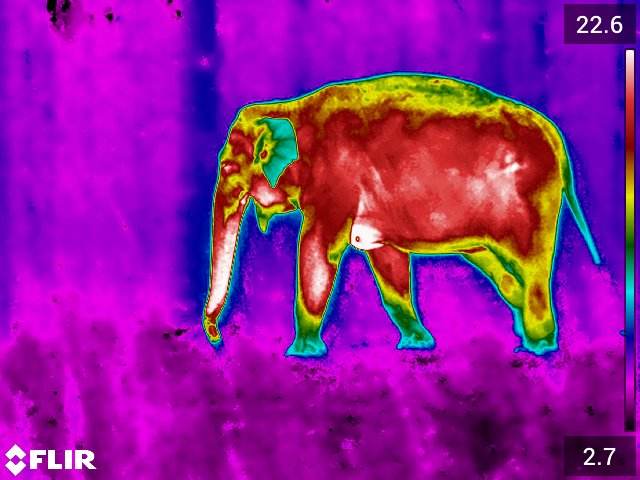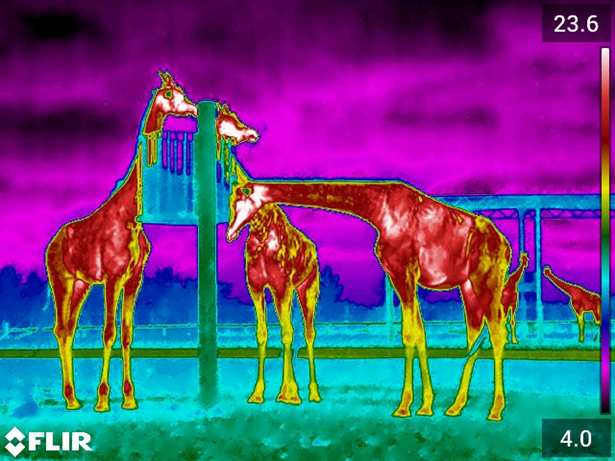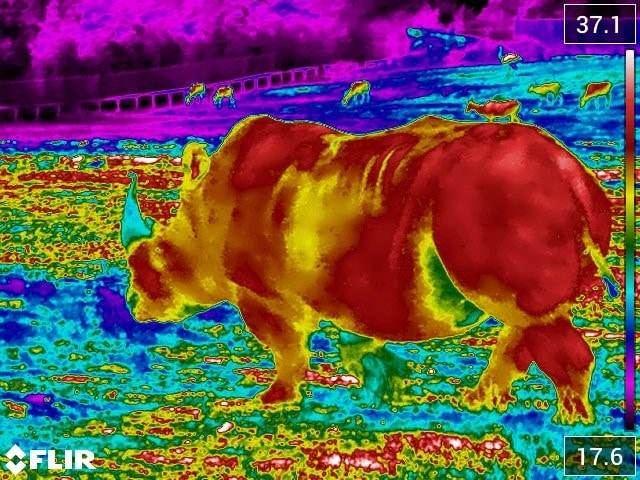Research
Infrared Thermography
Overview
Infrared thermography (IRT), or thermal imaging, is a method which uses a specialized camera to detect changes in surface temperature. Previously used widely within the agriculture industry, IRT is gaining interest by many zoological facilities due to its non-invasive nature. IRT has been found to provide valuable information about potential medical issues, reproductive status, and thermoregulation abilities.
Our Research
Thermal imaging can be used to detect surface temperature changes which result from changes in blood flow. These changes in blood flow can provide key insights. Work to date suggest that IRT is particularly useful in medical imaging, for example, diagnosing and monitoring injuries and disease. It also assists with studies of physiology and disease, and detecting estrus, in particular in species in which there are limitations of hormone analysis for distinguishing pregnancy.
Our Research
Thermal imaging is incorporated into African Lion Safari’s veterinary care as an additional tool to assess potential medical conditions in several species. Other current research projects utilizing IRT include monitoring estrus in rhino and investigating thermoregulation mechanisms in Asian elephants.
Our Future Goals
Future studies will be focused on using thermography to assist in monitoring estrus in cheetah and elephant, distinguishing outcome of artificial insemination, and monitoring reproductive events. For example, by developing novel methods in which birthing date can be predicted in elephants using changes in the surface temperature of mammary glands. Additional future studies include the use of IRT to determine the viability of eggs and incubation patterns prior to hatch.


